Krzysztof Kieslowski’s ‘Blind Chance’ opens with a sequence of fragmentary vignettes that may be memory, contemporaneously occurring events, or glimpses of what’s to come. The first shot is of a man screaming. By the end of the film, it’s fairly easy to place this in the chronology of events – in each of the three alternative chronologies, actually – but the other bits of visual information prove thornier, even with multiple viewings. Basically, though, this opening sequence establishes Witek (Boguslaw Linda) as a medical student doubting his vocation, unsure about a possible relationship with fellow student Olga (Monika Gozdzik), and trying to deal with his father’s death.
Obtaining Dean’s Leave to postpone his studies, he rushes to catch a train back home. The train is already pulling out of the station, gathering speed, and Witek is rapidly running out of platform as he goes pounding full-tilt after it.


Three alternative realities diverge at this point. Kieslowski follows them through individually and chronologically, but that’s his only concession to simplicity. What follows is a thinking-cap-on piece of filmmaking: deep, profound, thought-provoking and played out in scenes which alternate between Tarkovsky-like extended takes and elliptical brevity.
In the first scenario Witek catches the train by the narrowest of margins and meets Werner (Tadeusz Lomnicki), a hardline communist who introduces Witek to empire-building party member Adam (Zbigniew Zapasiewicz). Witek joins the party and is treated as something of a golden boy. His naivety about party politics is countered by his enthusiasm, and he acts effectively (though not necessarily by the book) when the dirty job of dealing with a hostage situation at a mental health facility is foisted on him. A chance meeting with old flame Czuszka (Boguslawa Pawelec) leads to a rekindled relationship. But things start to turn sour: Czuszka is arrested; Adam’s mentorship of Witek is revealed as having a darker aspect; an important trip abroad is cancelled at the last moment. Witek’s standing in the party is compromised, and both his relationship and his ideology are in tatters. This scenario ends with Witek, turned away from his flight, committing an act of vandalism at the airport.
The second scenario opens as Witek almost makes the train, before a jobsworth station master tackles him. Witek struggles with the man, striking him. Police arrive. Frustrated, Witek throws more punches. A magistrate gives him 30 days hard labour. While toiling with a shovel and counting off the days, he meets Marek (Jacek Borkowski) who involves him, on their release, in an underground political group. He channels his anger at the establishment in his work with a cell producing subversive literature. He mellows a little, though, when he meets old school friend Daniel (Jacek Sas-Uhrynowski) and begins a relationship with Daniel’s sister Werka (Marzena Trybala). Nonetheless, Witek’s ideologies are dealt a hammerblow just as brutally as in the first scenario when the cell is infiltrated, print equipment destroyed and members imprisoned. Witek is singled out in the fingerpointing and, as before, he finds himself persona non grata.
In the final scenario, Witek again misses the train but this time without getting into a brawl. He jogs to a stop and catches his breath. He lets it go. He sees Olga on the platform. They talk. Later they make love. Witek returns to his studies, the Dean encouraging his new-found commitment. Witek and Olga marry. They have a child. Satisfied with his life, Witek gives little thought to politics except to accept an invitation from the Dean to speak on his behalf at a foreign conference; the Dean’s ability to travel has been affected by the arrest of his son for producing subversive literature and the old man expects to be dismissed from the faculty at any time. Although Olga tries to convince Witek not to make the trip, he sets off for the airport. En route to the departure lounge, he walks past the communist party members from the first scenario who are being turned away from their flight; he walks past some of the cell members from the second scenario who are being scrutinised by airport security staff. He doesn’t give them a second glance.
‘Blind Chance’ lives up to its title. Not only does it examine the life-changing implications of such a trivial event as a man running for a train, and how just a slight variation can produce - chaos theory-like - such differences in outcome; but there are also any number of "blind chances" scattered throughout the individual scenarios, notably Witek’s renewed acquaintanceships with Czuszka in the first and Daniel in the second. The story that Werner tells Witek about a life-changing event in his and Adam’s past also hinges on chance. And it’s chance that puts the contented Witek on the plane at the end while Witek the politico and Witek the reactionary are prevented from taking it in their story strands.


Kieslowski, already a couple of dozen films into his decades-spanning career, made ‘Blind Chance’ in 1980. Due to state censorship it didn’t see the light of day until 1987, when Kieslowski was gearing up to make a succession of world cinema masterpieces that would define the last decade and a half of his life and cement his reputation as one of European’s most important directors: ‘A Short Film About Killing’, ‘A Short Film About Love’, the ‘Dekalog’ sequence, the poetic and mysterious ‘Double Life of Veronique’ and the critically and commercially popular ‘Three Colours’ trilogy. Stunningly assured and intelligent, ‘Blind Chance’ is the equal of any of these.
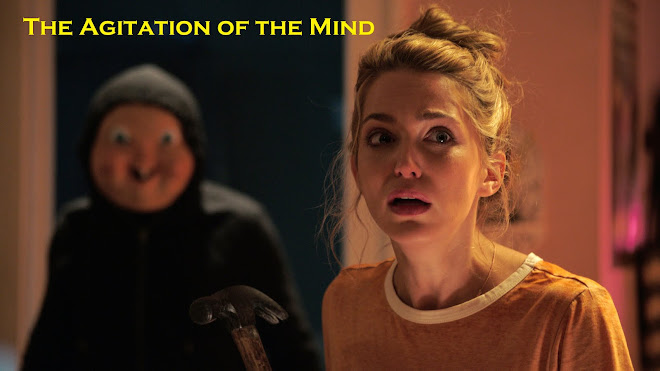

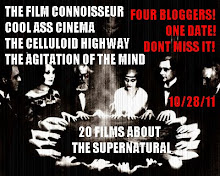
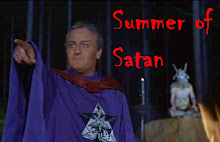
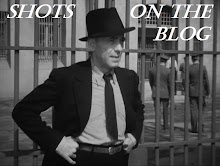










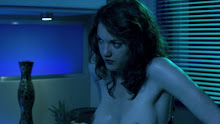
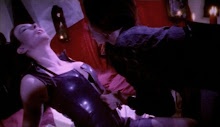





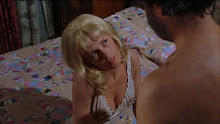
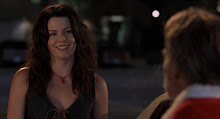








No comments:
Post a Comment